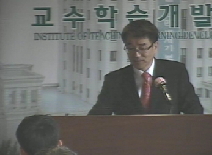본연구는우즈베키스탄의체제전환전략과경제정책들을제제전환경로모델과유형비교틀에서 분석해보고,우즈베키스탄의경제성장과대외무역이점진주의적체제이행경로에서갖는함의를살 펴...
http://chineseinput.net/에서 pinyin(병음)방식으로 중국어를 변환할 수 있습니다.
변환된 중국어를 복사하여 사용하시면 됩니다.
- 中文 을 입력하시려면 zhongwen을 입력하시고 space를누르시면됩니다.
- 北京 을 입력하시려면 beijing을 입력하시고 space를 누르시면 됩니다.
부가정보
국문 초록 (Abstract)
본연구는우즈베키스탄의체제전환전략과경제정책들을제제전환경로모델과유형비교틀에서 분석해보고,우즈베키스탄의경제성장과대외무역이점진주의적체제이행경로에서갖는함의를살 펴보고자하였다.우즈베키스탄의체제전환은변화속도와개혁수순(speed&sequence)측면 에서점진적,제한적인대외개방중점의경로유형으로나타났으며, 1992년체제전환시작이후최근 까지의경제적성과들을고려할때중국과같은성공적인점진주의이행의증거로서평가된다. 우즈베키스탄이보여준성공적체제전환경험이라는것을좀더구체적으로보면, 1990년대 체제전환개시직후조기에달성한경제회복과안정, 2000년대이후높은경제성장의달성등이 고이것은경제적인조건(부존자원,국제시장),제도적초기조건(구소련체제유산)을배경으로 한중앙집권적인경제정책(시장통제와수입대체정책)의추진에의한것이라볼수있다. 사실우즈베키스탄의경제적성과는풍부한천연자원및해당부존자원품목의우호적국제시장 가격흐름이큰역할을했고,또한권위주의정부에의한시장통제와수입대체정책이국내경제를 외부충격으로부터어느정도보호했다는점에기인했다. 따라서대내외경제적여건에의지한 실적과대외적충격차단에만주목한경제자립도의강조는우즈베키스탄의경제적성과를과대평 가할위험을갖고있다. 그런 점에서 구조개혁이 결여된 우즈베키스탄의 성과에 대한 이른바 ‘우즈벡성장의수수께끼’, 또는 ‘우즈벡의 역설’이라는 것은 장기적으로 볼 때 ‘우즈벡의 위장된 성장 역설’(the Uzbek disguised growth paradox)일수도있다. 아울러 중앙집권적인 경제관리와 시장통제의지 속에 따른 구조개혁의 지체는 향후 우즈베키스탄의 성공적인 체제이행 전망을 어둡게하고있다. 우즈베키스탄이 향후 경제성장을 지속하기 위해서는 대외무역을 포함하여 경제전반에 통제와 비효율을 초래하는 중앙집권적 경제관리방식에 중대한 혁신을 필요로 하며, 그것은 무엇보다도 시장경제로의 체제전환틀에서 진행되는 근본적 경제구조의 개혁(structural reform)즉 추가적인 자유화(liberalization)와 사유화(privatization)의 추진을 통해 이루어져야 한다.
다국어 초록 (Multilingual Abstract)
The aimof this study is to analyze the transformation strategy and policy of Uzbekistan in the economic transition process, and to grope for the implications of so-called Uzbek paradoxical growth and foreign trade in the economic transformation path. ...
The aimof this study is to analyze the transformation strategy and policy of Uzbekistan in the economic transition process, and to grope for the implications of so-called Uzbek paradoxical growth and foreign trade in the economic transformation path. As a result, theUzbek economic transformation can be categorized as a type of gradual and restrictive outward-opening fromthe perspective of speed & sequence on the basis of system transformation path model, which may possibly be evaluated as a case of successful gradualismlike China as well. In a concreteway, the experience of theUzbek successful transitioncomprises a economic recovery and stability in the 1990s during the early period of transition, and then robust economic growth in 2000s and until quite recently. But, in fact the Uzbek economic performance can be said to achieved by economic initial conditions(rich natural resource endowment and favorable international price to resource export) and centralized economic policy(market control and import substitution industrialization policy)with institutional initial conditions, that is the legacies of centrally planned economic systemin Soviet era. Therefore, when only depending on economic conditions(natural resources and international market price) and self-sufficiency fromexternal shock, there could be a risk of overestimation to theUzbek real performance. In that sense it may turn out that the Uzbek growth puzzle or the Uzbek paradox without structural reform conclude to the Uzbek disguised growth paradox in the long run. For sustaining economic growth substantial reform moves is needed in Uzbekistan. If progressive liberalization and privatization are delayed, and it will make the prospect of the Uzbek successful transition so gloomy.
목차 (Table of Contents)
- 국문요약
- Ⅰ. 서론
- Ⅱ. 탈사회주의 체제전환경로 모델과 유형
- Ⅲ. 우즈베키스탄의 체제전환 정책
- Ⅳ. 우즈베키스탄의 경제성장 역설과 대외무역
- 국문요약
- Ⅰ. 서론
- Ⅱ. 탈사회주의 체제전환경로 모델과 유형
- Ⅲ. 우즈베키스탄의 체제전환 정책
- Ⅳ. 우즈베키스탄의 경제성장 역설과 대외무역
- Ⅴ. 결론
- 참고문헌
- ABSTRACT
참고문헌 (Reference)
1 신동천, "한국 수출보험의 사고율과 비상위험에 관한 연구" 한국무역보험학회 15 (15): 1-17, 2014
2 유승균, "한-우즈베키스탄 서비스무역 활성화 방안" 한국무역보험학회 16 (16): 153-170, 2015
3 조명철, "체제전환국의 경제개발비용 조달" 대외경제정책연구원 2000
4 이선혜, "정치적 위험이 FDI 유입에 미치는 영향에 관한 연구" 한국무역보험학회 16 (16): 87-115, 2015
5 박광작, "이행기경제의 체제전환유형의 북한적용 유용성 비교연구" 7 (7): 2000
6 박제훈, "이행기경제의 체제전환비교모델" 대외경제정책연구원 1994
7 이재영, "우즈베키스탄의 정치·경제 현황과 경제협력방안" 대외경제정책연구원 2005
8 김영진, "우즈베키스탄의 ‘경제성장 역설’에 대한 고찰: 초기조건, 체제전환전략, 경제실적" 한국비교경제학회 17 (17): 91-127, 2010
9 박지원, "우즈베키스탄과 몽골의 시장경제 체제전환 초기 10년: 전략선택의 배경과 사유화 과정의 경로" 러시아연구소 28 (28): 1-38, 2012
10 "우즈베키스탄 정치·경제 동향"
1 신동천, "한국 수출보험의 사고율과 비상위험에 관한 연구" 한국무역보험학회 15 (15): 1-17, 2014
2 유승균, "한-우즈베키스탄 서비스무역 활성화 방안" 한국무역보험학회 16 (16): 153-170, 2015
3 조명철, "체제전환국의 경제개발비용 조달" 대외경제정책연구원 2000
4 이선혜, "정치적 위험이 FDI 유입에 미치는 영향에 관한 연구" 한국무역보험학회 16 (16): 87-115, 2015
5 박광작, "이행기경제의 체제전환유형의 북한적용 유용성 비교연구" 7 (7): 2000
6 박제훈, "이행기경제의 체제전환비교모델" 대외경제정책연구원 1994
7 이재영, "우즈베키스탄의 정치·경제 현황과 경제협력방안" 대외경제정책연구원 2005
8 김영진, "우즈베키스탄의 ‘경제성장 역설’에 대한 고찰: 초기조건, 체제전환전략, 경제실적" 한국비교경제학회 17 (17): 91-127, 2010
9 박지원, "우즈베키스탄과 몽골의 시장경제 체제전환 초기 10년: 전략선택의 배경과 사유화 과정의 경로" 러시아연구소 28 (28): 1-38, 2012
10 "우즈베키스탄 정치·경제 동향"
11 한국수출입은행, "우즈베키스탄 국가신용도 평가리포트" 2013
12 정웅, "북한의 체제변화경로에 관한 연구 : 중국․베트남 사례의 시사점을 중심으로" 5 (5): 2005
13 박제훈, "북한경제체제의 변화 전망: 체제동학적 연구" 한국비교경제학회 9 (9): 3-120, 2002
14 김희국, "단기수출보험의 위험도분류기준의 적합성에 관한 연구" 한국무역보험학회 15 (15): 19-34, 2014
15 常修澤, "中國國民經濟市場化的推進程度及發展思路" 中國社會科學院經濟硏究所 (11) : 1998
16 "World Economic Outlook(Focus on Transition Economies)"
17 The World Bank, "World Development Report 1996: From Plan to Market" 1996
18 "Transition, The First Ten Years: Analysis and Lessons for Eastern Europe and the Former Soviet Union"
19 EBRD, "Transition Report, 2000~2013" 2000
20 EBRD, "Transition Report 2014" 2014
21 Fischer, Stanley, "Transition Economies: The Role of Institutions and Initial Conditions" 2004
22 Zettelmeyer, J., "The Uzbek growth puzzle" International Monetary Fund 1998
23 Spechler, M., "The Economic Prospects of the CIS: Sources of Long Term Growth" Edward Elgar 2004
24 Brada, Josef C., "Privatization Is Transition-Or Is It?" 10 (10): 1996
25 North, D. C., "Institution, Institutional Change and Economic Performance" Cambridge University Press 1990
26 Perkins, Dwight, "Completing China's Move to the Market" 8 (8): 1994
27 Montias, J. M., "Comparative Economics" Harwood Academic Publishers 1994
28 The World Bank, "Comparative Economic Systems: Models and Cases" Richard D. Irwin, Inc 1994
29 Blackmon, Pamela, "Back to the USSR : Why the Past Does Matter in Explaining Differences in the Economic Reform Processes of Kazakhstan and Uzbekistan" 24 (24): 2005
30 Ostrom, E., "An Agenda for the Study of Institutions" 48 (48): 1986
31 Quaisser, Wolfgang, "A Comparison of Economic Transformation in Eastern Europe and East Asia" 53 : 1996
동일학술지(권/호) 다른 논문
-
글로벌 가치사슬 시대 수출중소기업의 한ㆍ중 FTA 활용방안에 관한 연구
- 한국무역금융보험학회(구 한국무역보험학회)
- 권순국
- 2015
- KCI등재
-
메탈 테크회사와 우즈베키스탄 정부간 투자분쟁사건의 경위 - 부패행위의 정황증거를 중심으로 -
- 한국무역금융보험학회(구 한국무역보험학회)
- 김선정
- 2015
- KCI등재
-
단기수출보험(선적후-일반수출거래 등) 개정약관에 관한 소고
- 한국무역금융보험학회(구 한국무역보험학회)
- 안유신
- 2015
- KCI등재
-
수출신용보증보험의 한류 문화콘텐츠 적극적 적용에 관한 연구
- 한국무역금융보험학회(구 한국무역보험학회)
- 이제홍
- 2015
- KCI등재
분석정보
인용정보 인용지수 설명보기
학술지 이력
| 연월일 | 이력구분 | 이력상세 | 등재구분 |
|---|---|---|---|
| 2026 | 평가예정 | 재인증평가 신청대상 (재인증) | |
| 2021-03-26 | 학술지명변경 | 한글명 : 무역보험연구 -> 무역금융보험연구 |  |
| 2020-01-01 | 평가 | 등재학술지 유지 (재인증) |  |
| 2017-01-01 | 평가 | 등재학술지 유지 (계속평가) |  |
| 2013-01-01 | 평가 | 등재학술지 선정 (등재유지) |  |
| 2012-01-01 | 평가 | 등재후보 1차 PASS (등재후보1차) |  |
| 2010-07-01 | 학회명변경 | 한글명 : 한국수출보험학회 -> 한국무역보험학회영문명 : The Academy For Export Credit Insurance -> The Korean Academy for Trade Credit Insurance |  |
| 2010-01-01 | 평가 | 등재후보학술지 선정 (신규평가) |  |
학술지 인용정보
| 기준연도 | WOS-KCI 통합IF(2년) | KCIF(2년) | KCIF(3년) |
|---|---|---|---|
| 2016 | 0.94 | 0.94 | 0.91 |
| KCIF(4년) | KCIF(5년) | 중심성지수(3년) | 즉시성지수 |
| 0.77 | 0.71 | 0.876 | 0.21 |




 KCI
KCI eArticle
eArticle






